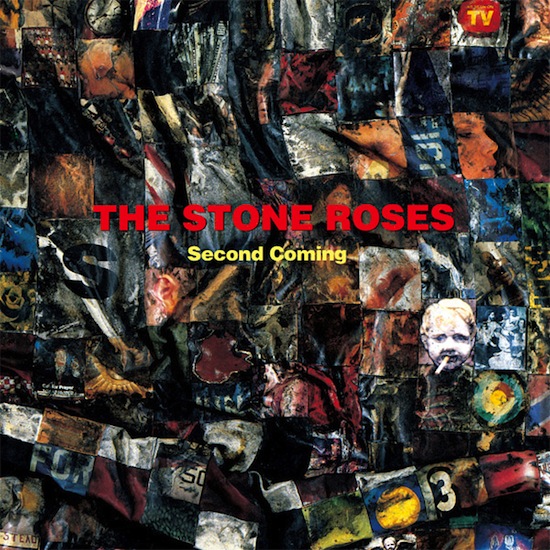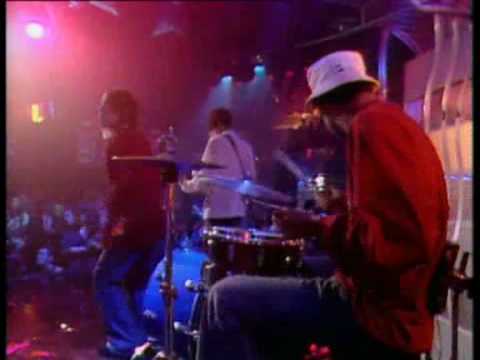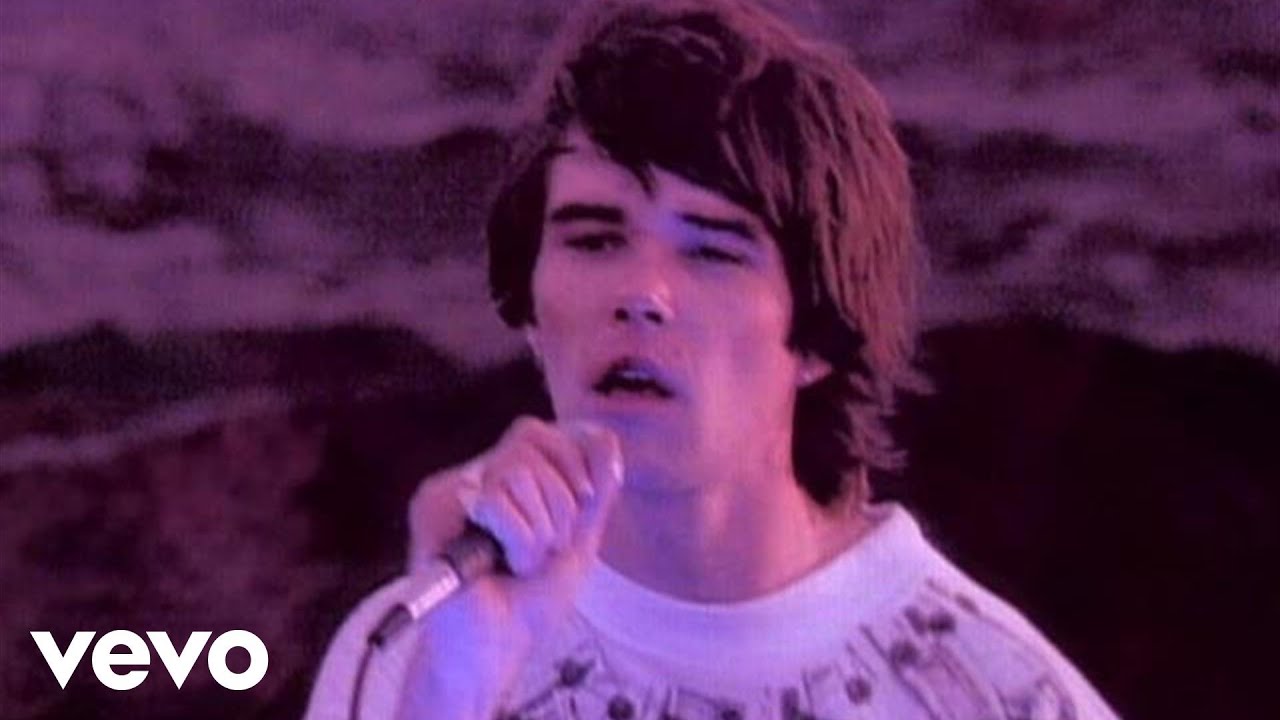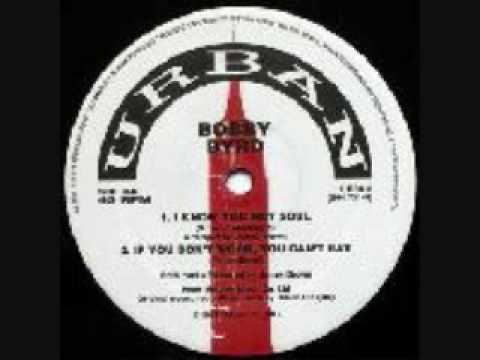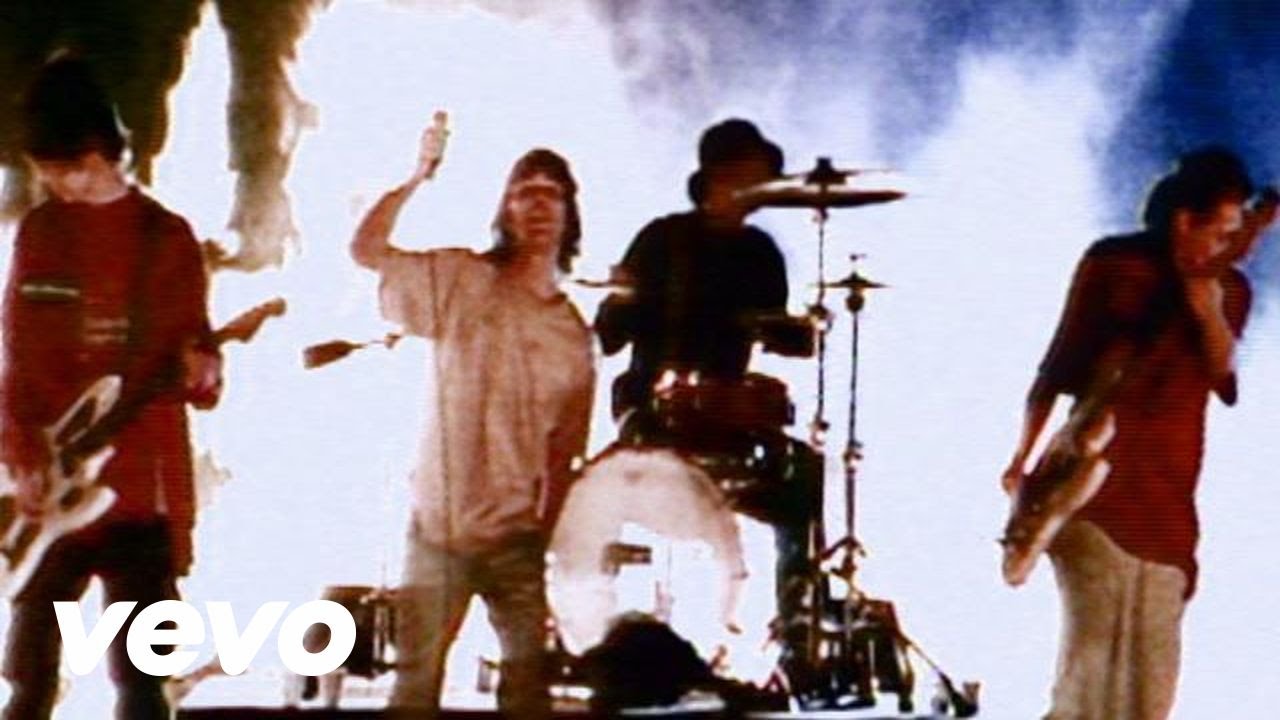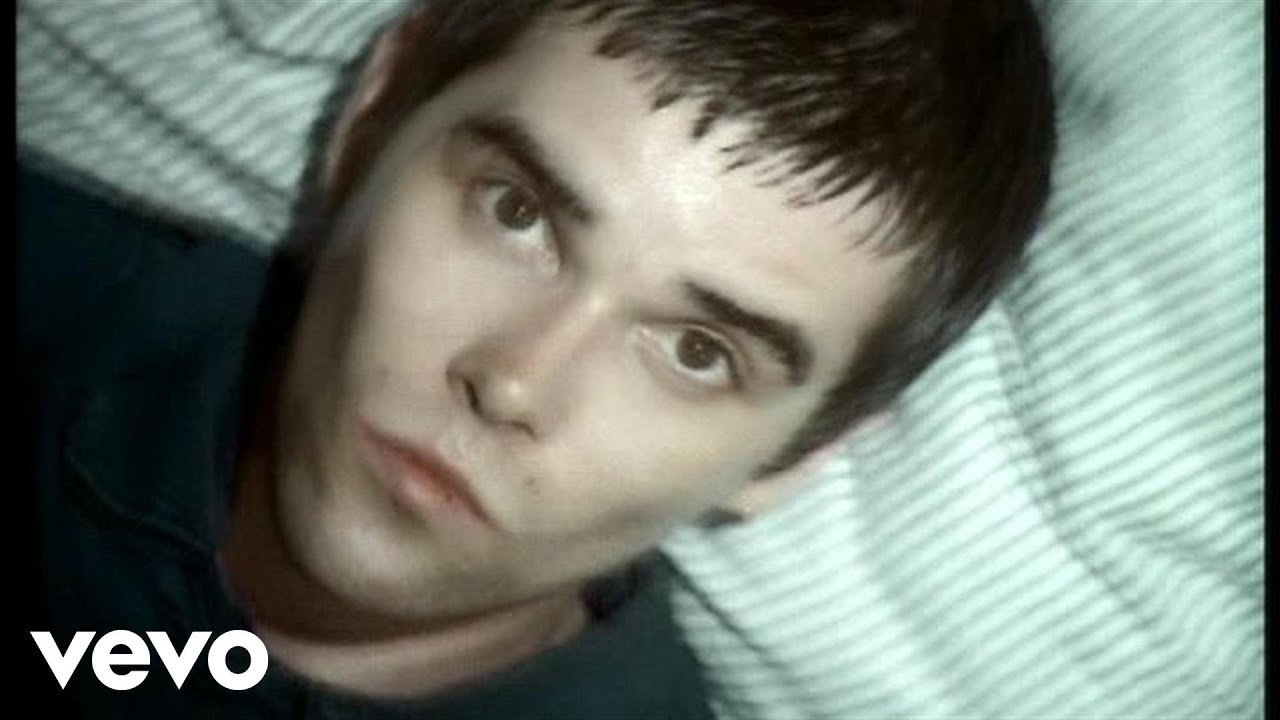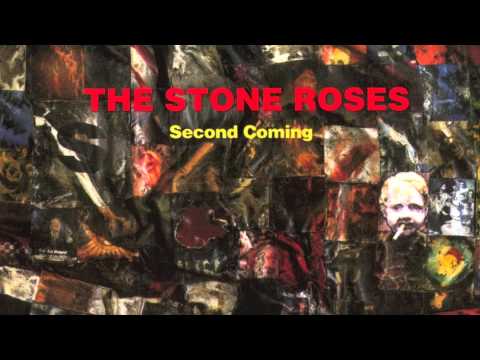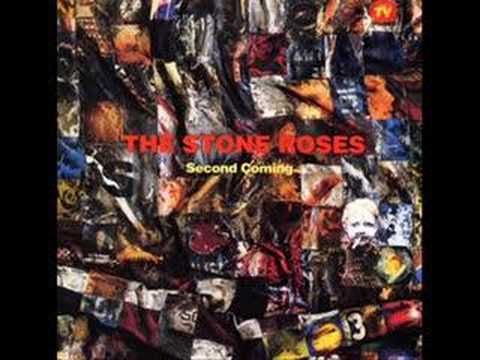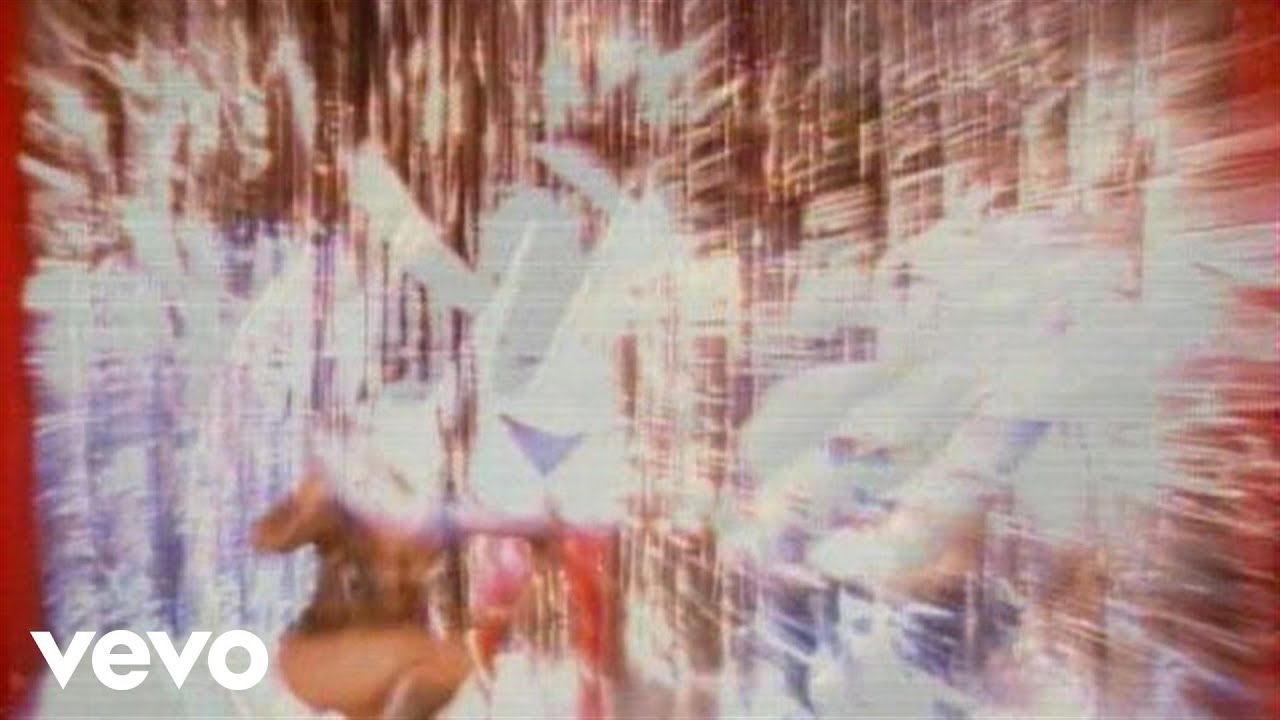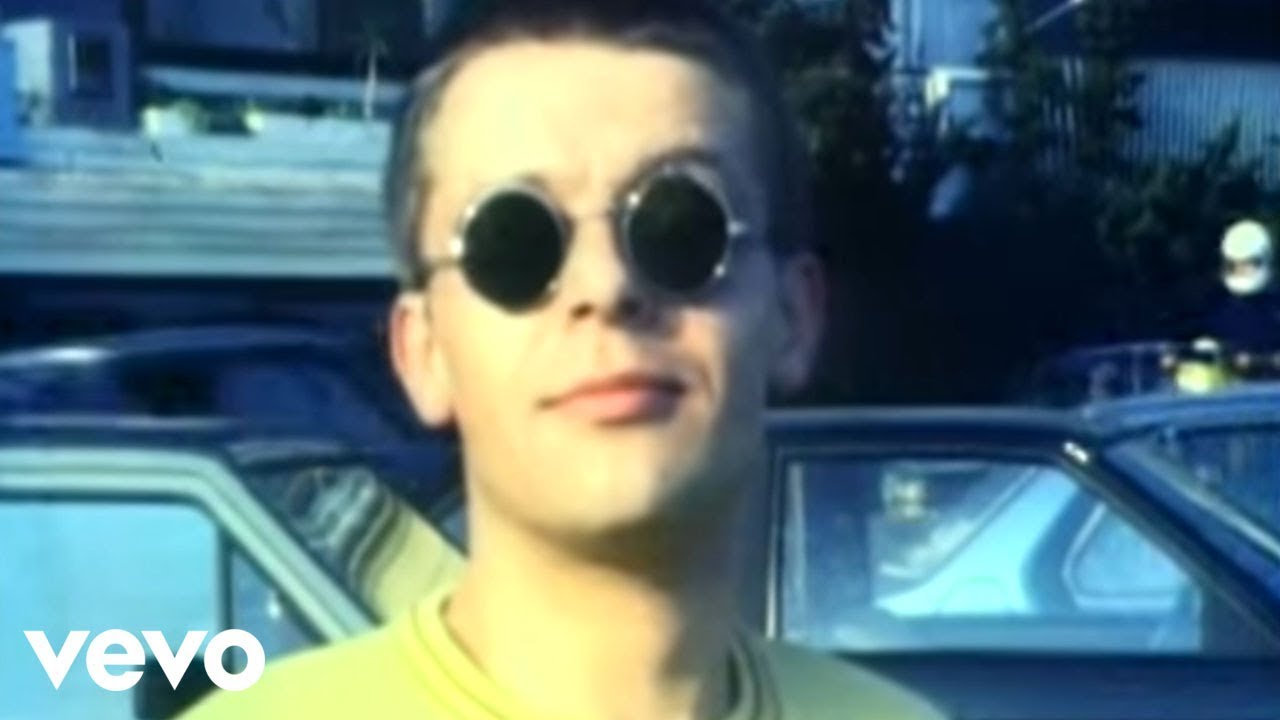The story of the creation of the second Stone Roses album is well known. It follows one of rock’s oldest archetypes – that over-familiar combination of drugs, lawyers and ego that conspires to throw a band off the rails – so gains traction partially because it fits our preconceptions and prejudices. The record is generally seen as the capstone of an elaborately constructed career suicide that had begun shortly after ‘Fools Gold’ joined ‘Hallelujah’ on that Manc-dominated edition of Top Of The Pops to consummate the marriage of indie and dance: a ruinous four-year hiatus destroyed the band’s momentum and robbed the world of their apparent genius right at the point of its (no pun intended) flowering. To the many who fell in love with their self-titled debut and
craved more of the same, this record has come to symbolise everything that went wrong, and consequently the prevailing wisdom says that pretty much nothing about it is of any worth. Not for the first time, of course, the prevailing wisdom manages to be almost entirely wrong.
I’m not particularly interested in rehashing or re-examining the path Ian Brown, John Squire, Mani, Reni and the retinue of producers and other creative or business associates took to get to Second Coming. I don’t really see much point in attempting to re-tell the story of its elephantine gestation and the many pitfalls the band tried, at first failed, then eventually managed to overcome on the way to getting the damn thing finished. What interested me at the time, and continues to captivate me now, is the record itself: not the stories that swirled behind, around
and all over it on its release, but the music contained in its grooves (and let’s get that clear from the outset, too: this was a double album and exists, for this listener if not necessarily for anyone else,
primarily in its incarnation as four sides of vinyl. Not for any tedious audiophile reasons – though it does indisputably sound better when that format is the one you’re listening to – but because it makes the most sense if considered in those four distinct sectors or chapters). For sure it’s bloated with its own sense of self-importance; at certain points its grandiloquence grates; and there’s some real dross in among the delights. But give it a listen with as much of the extraneous back-story pared away as is possible to manage for the sophisticated 21st century audience, and a great deal of what you hear stands revealed as sublime.
The first bit of detritus we need to clear away is the notion that, by 1994, the band that made The Stone Roses still existed in anything but corporeal form. True, these were the same four individuals, but the music they wanted to make had changed beyond all recognition. The
inability of some listeners to allow the Stone Roses to have evolved musically in the half-decade between albums is probably the biggest single factor in why this album continues to be maligned or disregarded. The standard view appears to be that the only two tracks that are really much cop are the two that sound most like the debut – when, even taking into account the fairly awful ‘Straight To The Man’, it’s clearly ‘Ten Storey Love Song’ that is Second Coming‘s nadir precisely because it’s the moment here where they go the furthest out of their way to evoke the sound and style of the first album. You can see why they did it, but it’s a song and a recording that doggedly and deliberately swims against the band’s own tide.
The whole hoopla over "baggy", all that talk of "Balearic beats", the apparently inevitable congress of indie kids and rave: for all that a ten minute b-side arrived to seal the deal, there’s precious little
indication on the first Roses album that this was how things would pan out. There is a sense of a groove to ‘I Wanna Be Adored’ and ‘I Am The Resurrection’, but nothing on that record signposted the ‘Fools Gold’ direction. The gigs were big on the idea of communion, and as a live spectacle the ’89-vintage Stone Roses brought notions of clubbing and live rock shows together: but their debut was a jangle-pop record rooted in ’60s sounds and styles which showed almost no influence from or affinity with loops, beats and grooves. Those who see that record as having anything to do with dance music or rave culture, except in the personal sense that they may have been listening to it a great deal on their way to or from events where music of that type still had no place, have muddied
the waters.
‘Fools Gold’ was so different – and presumably for the musicians involved so liberating – that they would never again sound the same as on their debut. (Or, at least, only briefly, and with such apparent effort as to render the results problematic at best.) The song has been eulogised extensively so there’s no need to go into it in too much detail here, save for the important bit that often gets forgotten: it’s a hip-hop record. Sonically, it’s about locating the heart of the riff, looping it and intensifying it through repetition, then playing with its layers. Electronic dance music tends to do this in neat and resolved measures, allowing the patterns to play for a set number of bars before adding another element or two, then maybe taking something else out (cf ‘Blue Monday’ – and in the case of records that great, this clearly isn’t meant to imply any criticism). Hip hop is more organic, retains the live-band feel from the samples it uses, and consequently sounds more hand-crafted
than mechanical. And yet the conventional narrative about ‘Fools Gold’ has been (accidentally?) obscured by (well-meaning?) attempts to stress the musicians’ involvement – because history apparently can’t have a band of their supposed stature, and a record of ‘Fools Gold’s acknowledged quality and importance, coming from something as base as finding a sample and playing along to it. Yet that is clearly, from the evidence of one’s own ears, what happened.
Mani has acknowledged that the bass line was the result of channelling the part that Flea of the Red Hot Chili Peppers played over the top of an Isaac Hayes sample on the Young MC track ‘Know How’, a Hacienda staple in 1988 – but that isn’t where the drums come from. No matter how brilliant Reni was and is – and he really is: we’ll get to that in a moment – the heartbeat of ‘Fools Gold’ comes from elsewhere. Not, however, as has been frequently but erroneously claimed, from James Brown’s ‘Funky Drummer’ – though it did come from one of James Brown’s funky drummers. In 1972, Brown’s long-term side man Bobby Byrd released a single called ‘Hot Pants (I’m Coming I’m Coming I’m Coming)’; this sounds like the source for ‘Fools Gold’ but there’s a better candidate. It’s an instrumental version of the same take of the same track, recorded by Brown’s magisterial backing group The JB’s (note, for once, the correct placement of that apostrophe: even when they were making records under their own name, they belonged to James), created by going to the master tapes and stripping out the vocal, and appears not to have been released until 1987 when it appeared on a UK 12" single under the name ‘Hot Pants (Bonus Beats)’. It’s that version, with the drums loud, proud and naked, which will have been the one the Stone Roses used. (According to War and Peace, Simon Spence’s biography of the band, Squire was unaware of the original track, and the version ‘Fools Gold’ was based around came from a copy of an Ultimate Breaks and Beats album he picked up in Eastern Bloc in Manchester. Squire told Spence that he bought the album because of its cover image of Tommie Smith and John Carlos giving the black power salute at the 1968 Olympics. Unfortunately for our present purposes, there is no album in the UBB series with that cover, nor does the series include the Bobby Byrd track.) It’s possible that they cut out the middleman and used the instrumental of Big Daddy Kane’s ‘Raw’, which had sampled the same break in 1987, but my money’s on ‘Bonus Beats’, regardless of its specific vinyl provenance – as the track plays, you hear the other instruments leaking into the mics that record John "Jabo" Starks’ staggering performance on the kit: some of those echoes sound as if they remain, half-buried and almost hidden, deep inside ‘Fools Gold’, another example of the exquisite seasoning that helped conjure up the song’s myriad new flavours.
After ‘Fools Gold’, and all but ignored since, there was ‘One Love’, a record that pointed more directly than anything else in the Roses’ catalogue at where a second album was likely to head towards. Across a very similar kind of rolling, skittish beat – quite probably based on the same Byrd/Brown/Starks sample, though it’s buried so deep in the mix there’s no way, short of going to the multitracks, to be sure whether it’s Reni playing the same pattern or an actual sample from the Urban/Polydor 12" – Squire gets the wah-wah pedal out and the band build a swampy stank of a song out of their new-found love of a loop-based methodology. It’s a record that rises proud out of the new-found freedom the Roses have with how they create and what the end-results sound like. The chiming chords and slightly twee ’60s pop melodic lines are gone: the group have taken a
blowtorch to that debut album and the sound it minted.
So by 1994 – and setting aside the bickering with labels and lawyers and thinking solely for a moment about the music – the chances of these four people ever making an album that sounded like the one they released in 1989 were beyond slim. That enough people still expected The Stone Roses Part Two and were surprised by what The Second Coming sounds like says more about them and how little attention they’d paid to the post-debut singles than it does the band. No-one who’d been paying attention should have been surprised by the record that belatedly emerged to become an early Christmas present 20 years ago this month: if anything, we should have been astonished that there were two tracks on the album which followed the pattern set on that five-year-old debut.
‘Ten Storey Love Song’ is the one moment on the record where there is a clear and apparently deliberate attempt to evoke the first LP. To these ears it always rang hollow – placed where it is, at the start of side two and after the double punch of ‘Breaking Into Heaven’ and ‘Driving South’, it read as a sop to fans of the first record who might by that stage be panicking that they’d spent the preceding 15 minutes listening to the wrong album. It’s actually a very well-written and -constructed song, but
the arrangement is glib. It also begs to have been played by the band as they were in 1989, where it might have had a sprightliness that this recording absolutely and completely lacks. ‘How Do You Sleep’ is a different matter entirely: it manages to recall the first LP without feeling like a regression, and the unbridled nastiness of the lyric – "are your dreams my nightmares? I hope they all come true" – puts it up alongside The Smiths’ ‘You Just Haven’t Earned It Yet Baby’ and Dylan’s ‘Positively 4th Street’ in the canon of songs that successfully deliver poisonous personal messages in deliberately pretty sonic settings. And there’s a lightness of touch to the performance that allows it to sparkle in a way the leaden-footed ‘Ten Storey…’ never does. But those moments aside, the rest of the record goes somewhere very different.
Detractors point to the album’s overblown opening, those four-and-a-half minutes of feedback, samples of running water and animal noises, ghostly fragments of disembodied voices and other miscellaneous sound effects, as evidence of a lack of ideas. And it’s true enough that, most of the time, you’ll drop the needle a third of the way into the track and just cut to the chase. But it works as a palette-cleansing prelude, a weird and beguiling preamble to the dense stew that’s to follow. But from that point on, side one is just fabulous. And the reason why is down to the half of the band who have tended, over the years, to get overlooked.
Almost everything that’s excellent about Second Coming revolves around Reni and Mani, and the opening two songs are probably the most outstanding examples. When they weren’t in court or flinging paint around in protests against business associates, the pair were clearly working
hard to hone an intuitive funkiness and innate musical understanding into something truly special. Side one of Second Coming is their career high: a quarter of an hour of rock rhythm-section excellence that few had reached before and probably none have matched since. Reni drives the train, Mani shovels in the fuel: on these two songs the pair remind us that it’s rock and roll. There is momentum and propulsion to these tracks, but the playing is relaxed and there is space for the groove to breathe. Squire’s bluesy licks attract the ear but it’s the magisterial sound bed provided by drums and bass that retains the attention and captures the imagination. Mani does what Peter Hook managed but in a different way, his lines suggesting, amplifying and anchoring the melodies; Reni gives the lie to the Led Zep comparisons the record often evokes with performances that capture the power of John Bonham but add the deft touch and jazz chops of Charlie Watts. His performances throughout this record are stellar but it is on side one where everything gels.
And what of these two songs? ‘Breaking Into Heaven’ can be seen as grandiloquent, and not without cause: it’s certainly arch. Its job is clearly in part to wryly nod at the band’s recent past and get fans on side from the start, so there’s a lot of inside jokes and self-deprecating allusions that have to be obvious enough to work. The lyric evokes Guns & Roses and The Doors, while the brilliant line "Heaven’s gates can’t hold me – I’ll saw those suckers down" presumably isn’t referencing Michael
Cimino’s ruinously expensive western by accident. The whole piece is a restatement of intent: "every icon in every town… your number’s up, I’m comin’ round," Brown spits, half-promise, half-threat. That near-12-minute running time – it’s only seven-and-a-bit without the intro, which both explains some of the point of the opening section and validates a good few of the complaints against it – is part of the plan. It’s a self-conscious attempt at making a Big Statement with a Big Song to kick off The Big
Comeback. That doesn’t make it problematic in and of itself: yet criticisms of it often imply that anyone who deliberately tries to do that kind of thing is committing some kind of rock heresy. The key is whether or not the song works, and the evidence on that point seems abundantly clear. Vindication came four years later, when another Manchester band looking to make a Big Statement tried to replicate its rolling groove, guitar drench and overall air of declamatory intrigue with a similar
selection of knowing self-references set to an almost identically paced backing track: ‘D’You Know What I Mean?’ was one of the best things on that Oasis album, too.
‘Driving South’ is a brave and ultimately successful attempt at writing a new-school blues. The concept is a good one: an updated version of the tryst with the devil at the crossroads that had been a staple of the genre since the 1920s. In this reading, Satan critiques Brown’s singing (another nudge to fans and critics alike, an invitation to not take anything the album says too seriously but also an illustration that a group apparently beset by struggles were still possessed of sufficient confidence to take critical comments and fashion new defensive weapons out of them) and has a soul-buying 0800 number. The track is based around a Squire riff that sounds like it ought to have existed before – a lazily limber loop of lead notes and crunching chords that recalls Hendrix and Page as well as Muddy
and Hubert. Again, though, the key to the success of the reading lies in Mani and Reni, and their lockstep performance that works both as anchor and powerplant.
Side two is the album’s weak point. It starts with ‘Ten Storey Love Song’ and ends with the wilfully obtuse – lyrically, in its odd arrangement, and particularly with its use of the never-possible-to-hear-without-laughing jaw harp – ‘Straight to the Man’, the two least interesting tracks on the record. (I’m not even going to dignify the "bonus" track on the CD by mentioning its name: it’s just five minutes of artless goofing around that should never have been taped, never managing to rise itself to the level
of being an actual song.) ‘Your Star Will Shine’ tries the same trick as ‘Don’t Stop’, the backing track using backwards tape loops, though it’s a bit more complicated and intricate, individual sounds played backwards but retained in a forwards sequence: it’s an interesting idea but fails to sufficiently strongly demand, never mind captivate and retain, the attention. But the other track here almost makes up for these missteps on its own.
The fabulous ‘Daybreak’ is something of a celebration of the band’s evident immersion in hip hop and the genre’s sample-source material. (And lest this should read like just the ramblings and projections of a rap obsessive, it’s worth pointing out that in the only interview the band did to promote the album – with The Big Issue’s reliably excellent music editor, Gary Crossing – Brown listed four artists he was currently listening to, none of which were rock bands, and one of which – Leaders of the New School – were both about as far out in the wilds as hip hop got in 1994, and whose most
recent LP was a commercial flop ignored by the rock media so not the kind of thing that a dabbler in rap would have known about and have name-dropped purely to show their eclecticism. OK, so two of the other three he mentioned were Cutty Ranks and Burning Spear, and I’m not about to argue
that Second Coming is a reggae album: but hopefully you get my drift. Meanwhile, back at the paragraph…) The Zeppelin comparisons were perhaps inevitable after side one’s rock focus, but on ‘Daybreak’ we get a clear sense that the hallowed ground the Roses were seeking – well,
certainly as far as the rhythm section is concerned – is somewhere most recently occupied by The Meters.
If you’re listening to the album on CD and opt to skip straight from ‘Driving South’ to ‘Daybreak’, you miss the start of the song. It begins as a pulse of bass, a looped figure that gradually emerges from ‘Ten Storey Love Song’s elongated dissolve, then drums, guitar and vocal all jump in together. On an album charcterised by songs with long intros – as well as ‘Breaking Into Heaven’s near five minutes before anything resembling a song hoves in to view, it’s a minute before ‘Love Spreads’ gets to the first vocal and ‘Begging You’ teases for a good while before coalescing into something coherent – this is striking. The lyric is delightfully oblique, appearing to partly exist as a plea for a black music radio station in Manchester, including a presumably knowing reference to Aleister Crowley, namechecking civil-rights icon Rosa Parks, and generally trying to link the US with the UK and beyond ("from Atlanta
Georgia to Longsight, Manchester"; "from New York City to Addis Ab-ab-ab-aba"). It comes off like stoned take on the occluded politics of ‘Dancing in the Street’ (those geographical references echoing, to this listener anyway, the "calling out around the world" idea) but sounds like something born under a bad (meaning good) sign somewhere near the mouth of the Mississippi. But it’s as a showcase for what had, by this stage, become a quite remarkable band that the song takes flight.
It’s the one track on the album where all four members receive a writing credit, and if it has the feel of a jam session that just happened to congeal into a song, then that may not be too far off the mark: it’s certainly not a problem. The first half of the track relies on a squiggle of a riff from Squire, little more than the sort of thing you might come up with if you were playing along to a rhythm track absent-mindedly and fairly high up on the neck of the guitar, which is either a sign of the song’s innocent charm and sense of fun, or evidence of the laziness and lack of inspiration that typifies the entire album, depending on your point of view. This slinks along on top of Mani’s rolling broil of a bass line, his uncanny ability to convey motion as well as solidity given full rein. There are two points where everything drops out, and Reni gets to play the kind of open drum break that ought to have, yet inexplicably failed to, had this album highly prized among hip-hop producers (it wasn’t like the band didn’t have form in that regard, either: Run DMC had sampled ‘Fools Gold’ to make ‘What’s It All About?’, a fine and fun 1990 single which failed to become a hit). After the second of them, around the 2’45" mark, there’s a subtle shift in the song’s focus – a key change, a new riff, different lyrics, though the same basic idea on the guitar. And after Brown has reached the end of what feels like an extemporised lyric, Squire heads them all off in a double-time coda. Reni’s playing, even in the breaks, is limber, relaxed and spare – any temptation to use the opportunity to showcase extravagant fills is ignored: or, perhaps more plausibly, such notions don’t even seem to occur to him. You can tell the great musicians from the merely very good ones not by how showy they can be when filling the space with notes, but in the space they leave in a song because they know that playing fewer notes usually improves things no end.
The second half of the record is more cohesive, and while – the outstanding closer ‘Love Spreads’ excepted – it doesn’t quite reach the heights of side one, there’s plenty here to excite and fascinate. ‘Begging You’ was singled out at the time, even by those disinclined to cut the band much slack, as somewhat astonishing. Truth to tell, it’s maybe not stood the test of time quite as successfully as one might have expected: it sill sounds unique not only in the Stone Roses ouevre, but across rock music as a whole – the nearest anyone has come since was probably the Chemical Brothers’ collaboration with Noel Gallagher. But for all its strident sense of sonic otherness, there’s not as much to it as meets the ear: the lyric goes beyond beguilement and enters the realm of the befuddled, and the track, while still retaining its shock and awe, hasn’t quite got sufficient compositional elements to sustain interest. It’s pretty much just one riff, and while it succeeds in delivering what E-40 would later call "humungous throb" (courtesy, yet again, of the superlative Mani and Reni, demonstrating a facility here for a totally different kind of rhythmatic power), it’s one trick writ large rather than the jewel-box of manifold glittering surprises that I think many of us felt it to be at the time.
Then there are the trio of songs where – in the absence of explanations from Squire (credited as sole songwriter for the vast majority of the LP), who told Crossing that he preferred it when listeners made up their own minds about what the songs might mean – we have to act wilfully gullible if we want to hear innocent love songs, or pick up on what are rather more than lyrical nods and winks to hear hymns to addiction. Perhaps the true intent behind ‘Tightrope’, ‘Good Times’ and ‘Tears’ was to examine the parallels between the total loss of control experienced by those in the sometimes terrifying grip of helpless love, and the physical convulsions and desperate craving for more of the destructive same that possess the afflicted. Whatever the plan, the writing here doesn’t always allow for ambiguity. "I’m on a tightrope, baby, nine miles high/Striding through the clouds on my ribbon in the sky," Squire has Brown sing. "I’m on a tightrope, baby, and one thing I’ve found/I don’t know how to stop, and it’s a long, long, long, long way down." The "tracks of your tears" aren’t quite the same ones Smokey Robinson wrote about: and after, in ‘Good Times’, Brown/Squire asks "How many days have I been twisted on your rack?," the extended metaphor is stretched to breaking point: "Hook me up now, reel me in/I’m hooked, line and sink/’Cos she’s my heroine." That the three songs are sonically different and each contain plenty of fine music – ‘Tightrope’ mines the folk-rock seam ‘Straight to the Man’ tried and failed to locate; ‘Good Times’ has the album’s most swaggering riff from Squire and some of the record’s finest guitar playing; ‘Tears’ is an object lesson in how the acoustic guitar can be as loud and forceful an instrument as its electric cousin – only to each merely find different ways of saying much the same thing is disappointing. That said, there are moments here that come close to transcendent, chief among them the question posed in ‘Tightrope’ – "Are we etched in stone or just scratched in the sand/Waiting for the waves to come and reclaim the land?" – where Squire’s inspired poetry meets one of Brown’s greatest performances, his instinctive ability to combine front-man confidence with innocence and fragility enriching the idea and making it mean more than what the words actually say.
The record closes roughly where it started, at least sonically – though because ‘Love Spreads’ was released as a single ahead of the album (and became the band’s biggest chart hit), and was therefore already familiar to listeners before the LP came out, it can seem less a part of this record than a separate project tacked on to the end of it. But hearing it in this context adds considerably to the impact. It’s a moment of true greatness: the riff, again, is worthy of Jimi or Jimmy, and the rhythm-section performance is of such muscularity and fluidity that surely the abiding last impression left by Second Coming is that the band fell apart at perhaps the worst possible moment. On this record they achieved a kind of musical alchemy, proving themselves capable – at least half of the time – of turning rock’s raw base elements into sonic gold. That ‘Love Spreads’ is also a pretty great song – Brown’s vocal encompassing rapper-worthy braggadocio and child-like uncertainty in a single breath, Squire’s lyrics hymning a mysterious apparition of a black madonna somehow becoming a crucified Christ – simply adds to the sense of frustration which must, in the final analysis, characterise any
consideration of this band, this career, this album. They – and it – may not be conclusively great; it (and they) resists any kind of empirical analysis and can’t be conclusively proven to have succeeded (or indeed to have failed). But throughout this remarkable record, if we can strip away the detritus of preconceptions, the weight of history and expectation, and hear it for what it is, we can clearly hear four people trying to hit the heights, and, in reaching if not quite ever fully grasping hold of what
they were aiming at, still going above and beyond what most other bands manage in longer careers filled with more conventional and extensive discographies.

